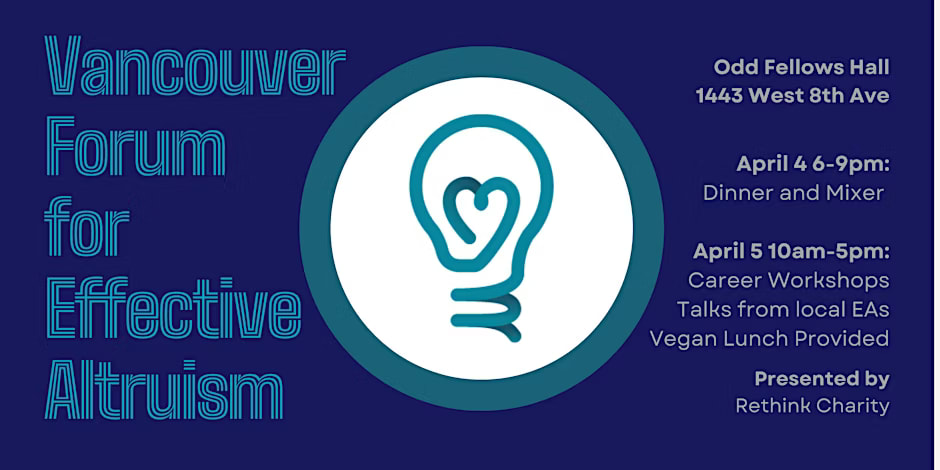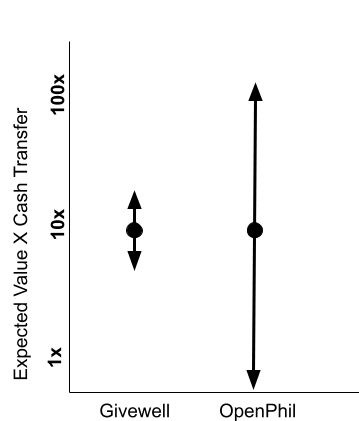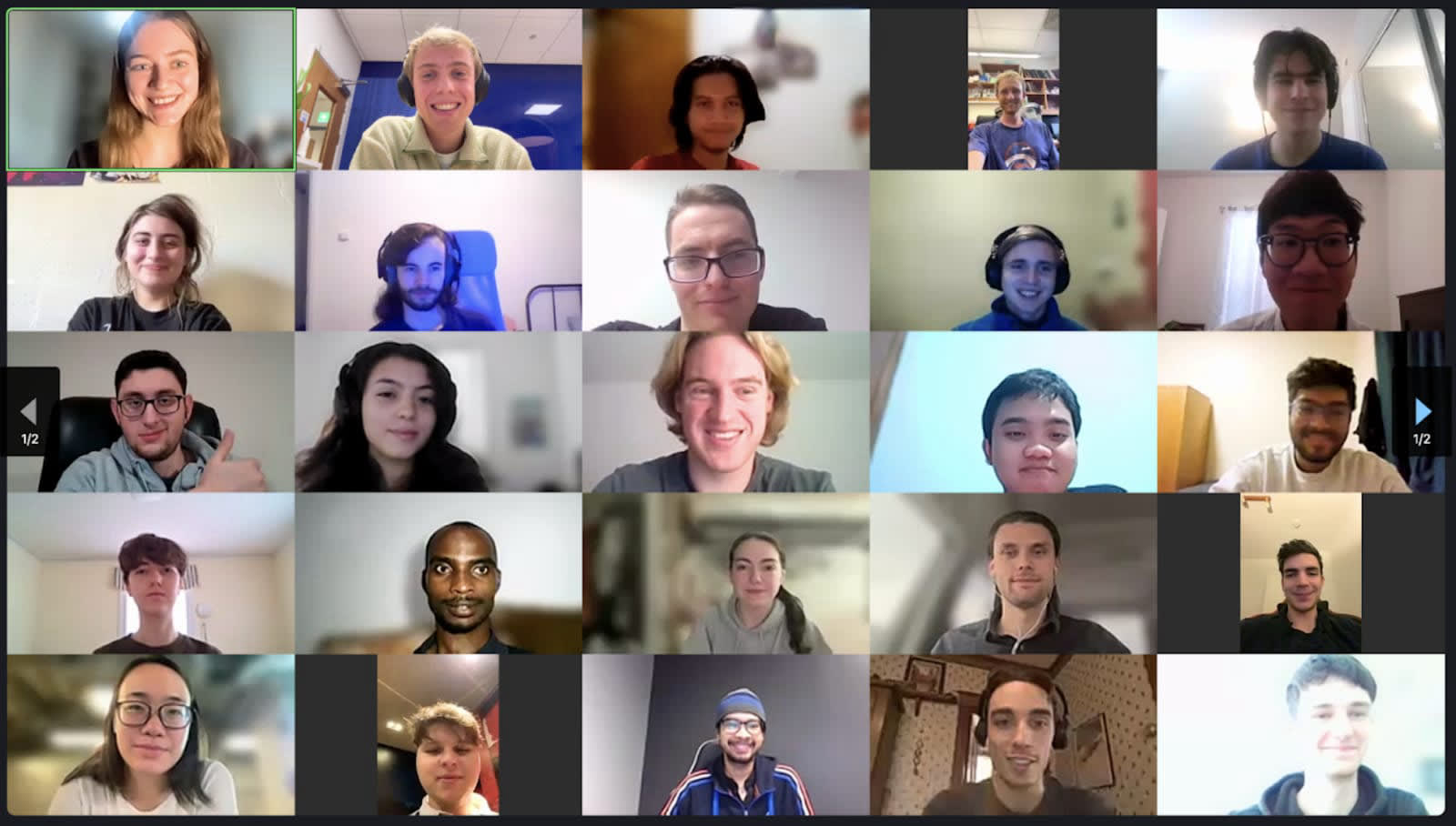Note: The Forum has been postponed to later in 2025. We’re working hard to bring you an incredible event – stay tuned for more details!
-----------------------------------------------------------------------------
We’re excited to announce the Vancouver Forum for Effective Altruism!
Whether you’re new to Effective Altruism, or have already made high-impact work a part of your life, you’re invited to join the Forum.
Join us this April 4-5 in Vancouver, Canada to make new connections, learn about the latest in EA, and enjoy a meal together.
Feel free to join for either or both events:
- Friday Dinner and Social: April 4, 6-9pm
- Saturday Forum: April 5, 10am - 5pm
- Career workshops
- Talks from local EAs
- Networking opportunities
- Vegan Lunch provided
Register here (note: event postponed)
Tickets are Pay What You Can - here’s a great link to help guide your decision.
A big thanks to Rethink Charity for sponsoring this event!





Seems like this will be a great event. Thank you, Danielle and Rethink Charity!
Thank you for your support Eric!